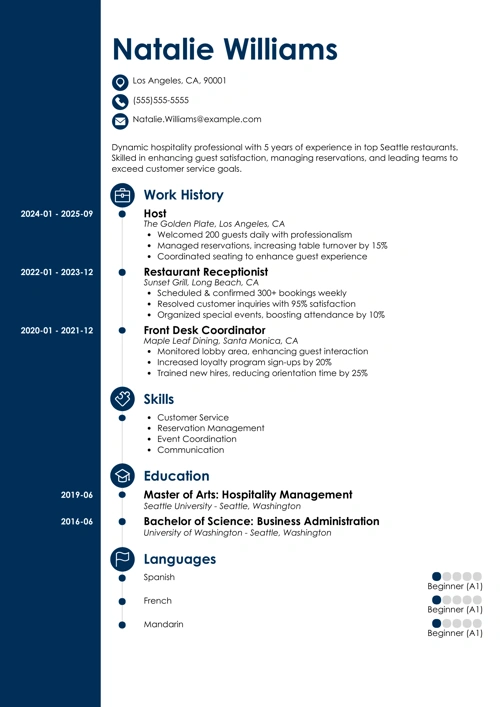
What makes a great CEO? At first glance, many top executives seem to share a common DNA of leadership. But when you look closer, an interesting question emerges: Do male and female CEOs lead in the same way?
That’s exactly what the new CEO Personality Traits by Gender Report set out to uncover. Previous research from Zety and the SIGMA Assessment System has shown that top executives share a core set of personality traits that sets them apart from the general population.
This expanded analysis draws on a decade of SIGMA’s proprietary personality assessments of over 700 CEOs to explore how gender is linked to core leadership traits, including risk-taking, empathy, autonomy, and more.
While there was a strong overlap in foundational traits, such as responsibility and self-control, the findings also highlight clear gender differences in leadership styles, with distinct patterns in how male and female CEOs approach risk, collaboration, and interpersonal dynamics.
Shared DNA: Traits All CEOs Tend to Have
The report highlights several CEO leadership traits where gender differences were negligible, suggesting shared strengths among all CEOs. Both male and female CEOs were similarly strong in discipline, accountability, organization, and social composure, which are core traits in individuals who reach executive-level positions.
Shared leadership skills among all CEOs include:
- Self-control: Strong emotional regulation and discipline
- Responsibility: High ethical standards and sense of duty
- Social confidence: Comfort in public leadership and interpersonal settings
- Order: Preferences for structure, planning, and prioritization
- Intellectual efficiency: Strength in analytical thinking and problem-solving
Where Leadership Styles Diverge
Despite the overlap, male and female CEOs differed in certain executive personality traits. Male CEOs were more likely to take risks, act independently, and seek influence, while female CEOs tended to lead with more caution, empathy, and collaboration, as outlined below:
- Risk-taking vs risk aversion: Male CEOs were more likely to pursue bold, high-uncertainty decisions. Female CEOs tended to lead with greater caution and sensitivity to risk.
- Achievement-oriented vs people-oriented: While all CEOs are highly driven, male CEOs leaned more heavily into ambition and influence, and female CEOs placed greater value on social connection and reputation.
- Assertiveness vs. affiliation: Male CEOs were more likely to seek authority and influence, while female CEOs showed a greater tendency toward empathy and emotional attunement.
These findings reveal the complexity of leadership psychology. These variations do not imply superiority of one style over another. Rather, they reflect different expressions of leadership in different contexts.
One area where male and female CEOs were noticeably similar and stood out from the general population was in their organizational approach. In contrast, CEOs were generally as easygoing and concerned with their reputation as the average person.
“Our goal is to demystify the psychology of leadership,” said Ted Jackson, CEO of SIGMA Assessment Systems. “Understanding these differences can help organizations build more balanced teams, support diverse leadership pipelines, and foster environments where different people can thrive.”
What It Means for Aspiring Leaders
This expanded report provides a roadmap for professionals looking to understand or emulate C-suite leadership. Skills related to many of the identified traits—such as curiosity, discipline, and responsibility—can be strengthened through practice.
What organizations can learn
While every workplace is different, the data offers some thought-starters for companies looking to support leadership development in a more intentional and inclusive way.
1. Build complementary teams
Rather than seeking a single “ideal” leadership style, diverse personality profiles can strengthen executive teams. Balancing big-picture thinkers with detail-focused implementers, or pairing high-energy visionaries with steady, grounded collaborators, can lead to more thoughtful, well-rounded decision-making.
2. Revisit leadership assumptions
Some traits still get labeled as “masculine” or “feminine,” but the data challenges that framing. Many women score high on assertiveness and strategic thinking, while many men show strong tendencies toward empathy and collaboration.
By recognizing that the personality traits of successful CEOs cut across gender lines, organizations can broaden the definition of leadership, uncover overlooked talent, and build more balanced leadership pipelines.
3. Spot strengths early
Traits like organization, drive, and discipline are among the strongest predictors of job performance, but they can be hard to spot through resumes or interviews alone. Traditional hiring often emphasizes past experience or technical skills, which means high-potential candidates with these traits may get overlooked. Companies might consider how to surface and support these qualities earlier.
Behind every executive title is a person shaped by values, experiences, and choices. Recognizing the nuances in leadership styles reminds us that success in the C-suite is as much about authenticity as it is about strategy.
For press inquiries, contact Skyler Acevedo, Public Relations Specialist, at skyler.acevedo@bold.com.
Methodology
SIGMA analyzed assessment data from 700+ CEOs between January 2015 and April 2025 using three validated personality tools (Jackson Personality Inventory – Revised, the Personality Research Form, and the Six Factor Personality Questionnaire). CEOs represented various industries across North America.
Gender-based comparisons were conducted by testing for mean differences between men and women on each personality trait, using Cohen’s d to measure effect sizes. The findings were compiled and co-presented by Zety, who authored the accompanying report and career insights.
About SIGMA Assessment Systems
For more than 50 years, SIGMA Assessment Systems has been helping organizations future-proof their leadership through scientifically validated personality assessments, executive coaching, and strategic consulting. Partnering with leading academics, SIGMA advances research in leadership development, emotional intelligence, and leader character, creating innovative tools that drive measurable impact.
With millions of assessments conducted, SIGMA’s solutions are trusted by Fortune 500 companies, government agencies, universities, and healthcare organizations. SIGMA’s data-driven approach uncovers the traits and competencies that matter most for leadership success, empowering organizations to build resilient, diverse, and high-performing executive teams.
About Zety
Zety resume templates and Zety's Resume and Cover Letter Generator are trusted by 12 million users each year. With 100s of options to choose from, including professionally designed resume templates to beat the ATS, users can create a professional resume in less than 15 minutes. Since 2016, Zety’s career blog has provided free data-driven insights to over 40 million readers annually, empowering professionals at every stage.
The editorial team includes Certified Professional Resume Writers, with the best career advice and evidence-based findings featured in Business Insider, CNBC, and Forbes, among others. Follow Zety on Facebook, LinkedIn, YouTube, X, and Instagram for free expert career tips and updates.


